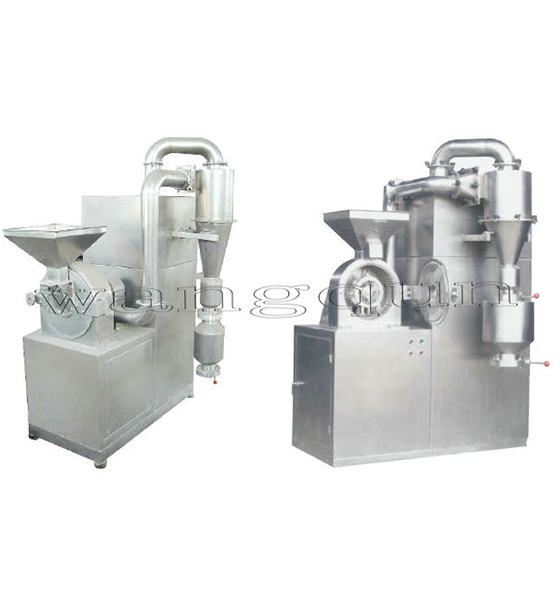Rotary Tablet Press for Nutritional Supplement Tablets
Introduction
The rotary tablet press is a critical piece of equipment in the pharmaceutical and nutraceutical industries, designed to produce high-quality tablets with precision, efficiency, and consistency. Nutritional supplement tablets, which include vitamins, minerals, herbal extracts, and other bioactive compounds, require strict control over weight, hardness, and disintegration to ensure efficacy and consumer safety. The rotary tablet press meets these demands by offering high-speed production, uniform compression, and flexibility in tablet design.
This article explores the working principle, key components, advantages, and applications of rotary tablet presses in the production of nutritional supplement tablets. Additionally, it discusses critical considerations for optimizing tablet quality and production efficiency.
---
Working Principle of Rotary Tablet Press
A rotary tablet press operates on the principle of compression force applied to powdered or granulated material within a die cavity. The process involves several stages:
1. Feeding – The powder or granules are fed into the die cavities via a feed frame, ensuring uniform filling.
2. Compression – The upper and lower punches move vertically to compress the material into a solid tablet.
3. Ejection – The lower punch rises to eject the finished tablet from the die.
4. Scraping – Excess powder is removed from the die surface before the next filling cycle.
The machine operates continuously, with multiple stations (punches and dies) rotating synchronously to achieve high production rates.
---
Key Components of a Rotary Tablet Press
1. Hopper – Stores the powder or granules before feeding into the dies.
2. Feed Frame – Distributes the material evenly into the die cavities.
3. Turret – A rotating disc that holds multiple sets of upper and lower punches and dies.
4. Punches and Dies – Tooling components that shape and compress the powder into tablets.
5. Compression Rollers – Apply force to the punches to compress the material.
6. Ejection Cam – Guides the lower punch to eject the tablet.
7. Control Panel – Allows operators to adjust parameters such as compression force, speed, and tablet weight.
8. Dust Extraction System – Removes excess powder to maintain cleanliness.
---
Advantages of Rotary Tablet Presses for Nutritional Supplements
1. High Production Capacity
Rotary presses can produce thousands of tablets per minute, making them ideal for large-scale supplement manufacturing.
2. Consistent Tablet Quality
Precise control over compression force ensures uniform tablet weight, hardness, and thickness.
3. Flexibility in Tablet Design
Different punch shapes and sizes allow for various tablet forms (round, oval, capsule-shaped) and embossing options.
4. Reduced Material Waste
Efficient feeding and compression minimize powder loss, improving yield.
5. Automation and Process Control
Modern rotary presses feature automated weight control, force monitoring, and real-time adjustments to maintain quality.
6. Compliance with Regulatory Standards
Designed to meet GMP (Good Manufacturing Practice) requirements, ensuring safety and traceability.
---
Critical Considerations for Nutritional Supplement Tableting
1. Material Properties
- Flowability – Powders must flow smoothly into dies to ensure uniform filling.
- Compressibility – The formulation should compact well without excessive force.
- Lubrication – Magnesium stearate or other lubricants prevent sticking and improve ejection.
2. Tooling Selection
- Punch and Die Design – Must match tablet shape and size requirements.
- Tool Steel Quality – High wear resistance ensures longevity and consistency.
3. Compression Parameters
- Pre-compression – Helps remove air before final compression.
- Main Compression Force – Determines tablet hardness and disintegration time.
- Dwell Time – Affects tablet strength and friability.
4. Environmental Controls
- Humidity and Temperature – Can affect powder flow and tablet stability.
- Dust Control – Prevents cross-contamination and ensures operator safety.
5. Quality Testing
- Weight Variation – Monitored using in-process checks.
- Hardness and Friability – Ensures tablets withstand handling and packaging.
- Disintegration and Dissolution – Critical for bioavailability of supplements.
---
Applications in Nutritional Supplement Manufacturing
Rotary tablet presses are widely used to produce:
- Multivitamin Tablets – Combining multiple active ingredients in precise dosages.
- Mineral Supplements – Such as calcium, magnesium, and iron tablets.
- Herbal Extracts – Including ginseng, turmeric, and echinacea tablets.
- Probiotic Tablets – Requiring gentle compression to protect live cultures.
- Effervescent Tablets – Special formulations that dissolve quickly in water.
---
Challenges and Solutions
1. Sticking and Picking
- Solution: Use anti-adherent coatings or polished punch faces.
2. Capping and Lamination
- Solution: Optimize compression force and dwell time.
3. Weight Variation
- Solution: Improve powder flow and ensure consistent die filling.
4. Machine Wear and Tear
- Solution: Regular maintenance and high-quality tooling.
---
Future Trends in Rotary Tablet Press Technology
1. Smart Manufacturing Integration
- IoT-enabled presses for real-time monitoring and predictive maintenance.
2. Enhanced Flexibility
- Quick-change tooling systems for faster product switching.
3. Sustainable Production
- Energy-efficient designs and reduced material waste.
4. Advanced Control Systems
- AI-driven adjustments for optimal tablet quality.
---
Conclusion
The rotary tablet press is an indispensable machine for producing high-quality nutritional supplement tablets efficiently and consistently. By understanding its working principles, optimizing process parameters, and addressing common challenges, manufacturers can ensure superior product performance and regulatory compliance. As technology advances, rotary presses will continue to evolve, offering greater precision, automation, and sustainability in supplement production.
For manufacturers seeking to enhance their tablet production capabilities, investing in a well-designed rotary tablet press is a strategic decision that delivers long-term benefits in quality, efficiency, and scalability.











 Teléfono
Teléfono
Comentario
(0)